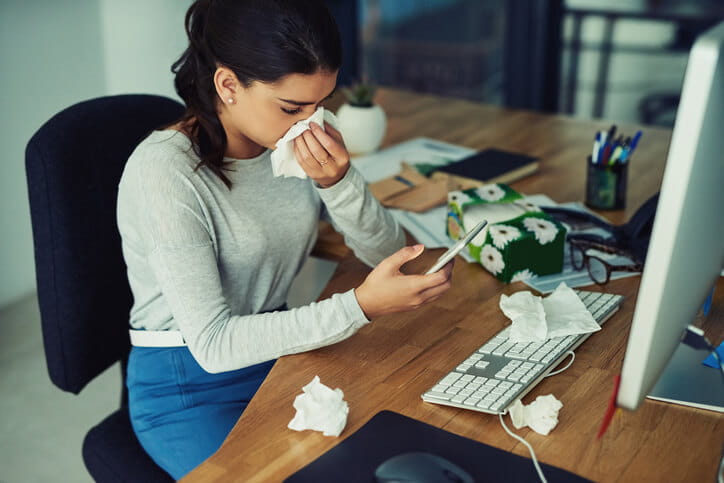Get the Care You Need, When You Need it
We’re here for your health, no matter what comes our way. Schedule a Virtual Care video or eVisit and get the care you need from the comfort of home.

Now that we’re in the midst of a global pandemic, symptoms of any kind can be unsettling. And it doesn’t help that the coronavirus that causes COVID-19 is infecting thousands of people during the start of allergy season. So how can you tell if the symptoms you’re experiencing are those associated with seasonal allergies or COVID-19? While some of the symptoms of COVID-19 overlap with allergies, there are several differences.
Spring allergies begin when plants and trees start to bloom, releasing pollen into the air. Allergies typically cause nasal symptoms, such as a runny nose and congestion, and itchy eyes. Here are some of the most common symptoms for seasonal allergies:
Some of the less common symptoms of seasonal allergies include:
We’re here for your health, no matter what comes our way. Schedule a Virtual Care video or eVisit and get the care you need from the comfort of home.
While a few of the symptoms of COVID-19 are similar to some of the symptoms of seasonal allergies, there are key differences that should help you determine what you’re suffering from. The most common symptoms of COVID-19 are:
If you have these symptoms, especially a fever, call your doctor. If you’re prone to seasonal allergies, pay attention to symptoms that are different from what you normally experience.
If you get seasonal allergies every year, you may notice that some of those symptoms are similar to those associated with COVID-19. Sneezing and sniffles aren’t typically associated with COVID-19 but are very common with allergies. Fever isn’t associated with allergies but is a very common symptom of COVID-19. That said, a dry cough and wheezing or difficulty breathing, especially for those with asthma in addition to allergies, are symptoms that are shared by allergies and COVID-19.
If you’re experiencing any or all the symptoms of COVID-19 described above, call your doctor. If the symptoms are manageable, you may be asked to recover at home. If you have the following symptoms, you may need to seek emergency care:
If you either know or think you’re suffering from seasonal allergies, you can do the following to help lessen your symptoms:
Trust Baptist Health to provide you with the reliable information you need to keep you and your family safe.
Get StartedIf you have more questions or concerns about COVID-19, go to BaptistHealth.com or visit other reputable sites, such as the World Health Organization, or the Centers for Disease Control and Prevention (CDC).